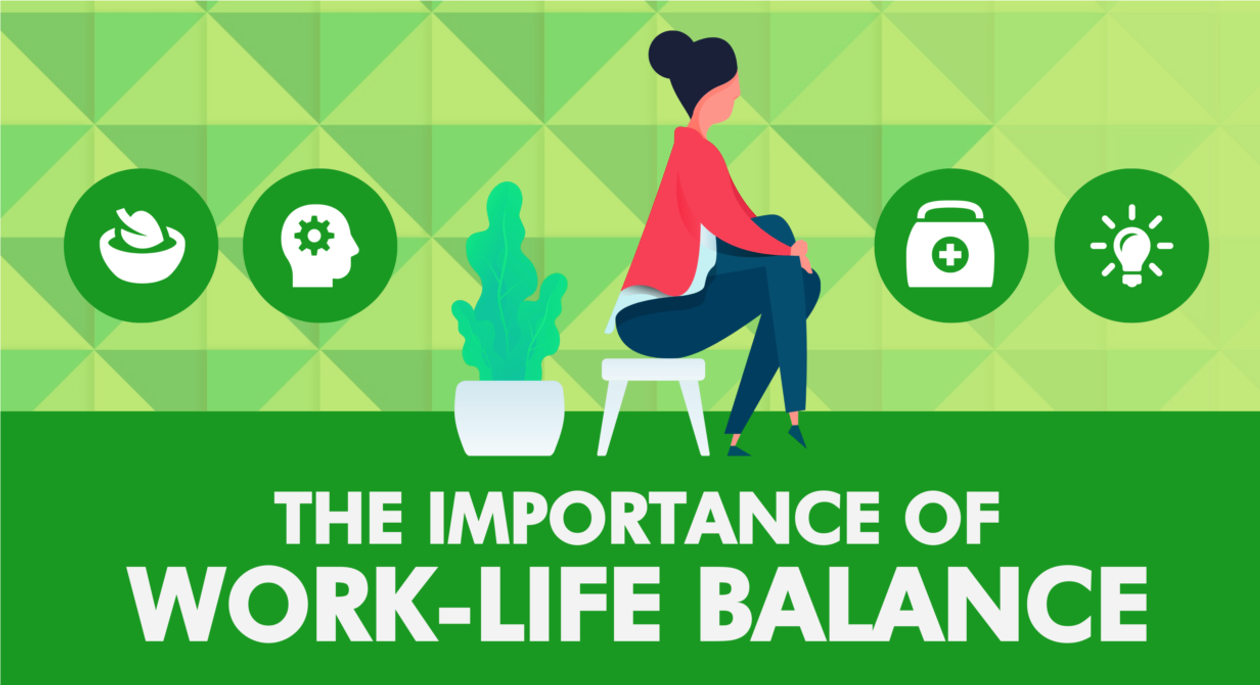The Importance of Work-Life Balance for Career Satisfaction

In today’s fast-paced and demanding world, achieving a work-life balance has become increasingly crucial. Work-life balance refers to the equilibrium between professional commitments and personal life. It involves managing one’s time, energy, and resources effectively to ensure both career success and personal well-being. Career satisfaction, on the other hand, relates to the level of contentment and fulfillment one experiences in their chosen profession. This article explores the importance of work-life balance for career satisfaction and provides practical strategies to achieve it.
Read More: Finding Your Passion: Aligning Your Career with Your Interests
Understanding Work-Life Balance
Work-life balance encompasses finding harmony between work and personal life domains. It involves allocating adequate time and attention to various aspects, such as career, family, health, and personal interests. Achieving work-life balance allows individuals to lead fulfilling lives while excelling in their professional endeavors. By prioritizing and managing their commitments effectively, individuals can avoid excessive work-related stress and maintain a healthy work-life integration.
Career Satisfaction and its Impact
Career satisfaction refers to the level of contentment and happiness derived from one’s chosen profession. It is influenced by various factors, including job engagement, work environment, growth opportunities, and personal fulfillment. When individuals experience career satisfaction, they are more likely to feel motivated, productive, and fulfilled in their work. A crucial aspect that significantly impacts career satisfaction is the ability to maintain a healthy work-life balance.
Benefits of Work-Life Balance for Career Satisfaction
- Improved mental and physical health: Achieving work-life balance contributes to better mental and physical well-being. By allowing time for relaxation, leisure activities, and personal relationships, individuals can reduce stress levels, prevent burnout, and improve their overall health. This, in turn, positively affects their career satisfaction.
- Enhanced productivity and performance: When individuals maintain a work-life balance, they are more focused, energized, and motivated in their professional roles. They can devote their undivided attention to work tasks, resulting in increased productivity and improved performance. The ability to effectively manage work and personal life demands allows individuals to bring their best selves to their careers.
- Better relationships and personal fulfillment: Work-life balance enables individuals to nurture meaningful relationships with family, friends, and loved ones. By investing time and effort in personal connections, individuals experience a sense of fulfillment and happiness outside of their professional lives. Strong personal relationships contribute to overall life satisfaction, which positively influences career satisfaction as well.
- Reduced stress and burnout: Maintaining a healthy work-life balance helps individuals prevent and manage stress and burnout. By allocating time for relaxation, hobbies, and self-care activities, individuals can recharge and rejuvenate, thus avoiding the negative consequences of chronic stress. This resilience enables them to navigate their careers with greater satisfaction and effectiveness.
Strategies to Achieve Work-Life Balance
- Setting priorities and boundaries: Clearly defining priorities and setting boundaries between work and personal life is essential. This involves identifying the most important aspects of life and allocating time accordingly. Communicating boundaries to colleagues and supervisors helps establish realistic expectations and allows for a healthier work-life integration.
- Time management techniques: Effective time management techniques, such as prioritizing tasks, setting realistic deadlines, and avoiding multitasking, can significantly contribute to achieving work-life balance. By optimizing time utilization, individuals can accomplish their professional responsibilities efficiently and still have time for personal activities.
- Flexible work arrangements: Many organizations offer flexible work arrangements, such as telecommuting or flexible schedules. Taking advantage of these options allows individuals to tailor their work hours to fit their personal needs, leading to improved work-life balance and increased career satisfaction.
- Self-care and well-being practices: Practicing self-care is vital for maintaining work-life balance. Engaging in activities that promote relaxation, stress reduction, and physical well-being, such as exercise, meditation, and hobbies, can help individuals recharge and maintain a healthy work-life integration.
Overcoming Challenges in Maintaining Work-Life Balance
Maintaining a work-life balance can be challenging, especially in demanding careers or during times of increased workload. Here are some strategies to overcome these challenges:
- Dealing with work-related demands: Prioritize tasks and focus on high-impact activities. Learn to delegate or seek assistance when necessary. Communicate your workload and concerns with supervisors to explore possible solutions.
- Handling personal commitments: Plan and organize personal commitments effectively. Use tools like calendars or productivity apps to manage personal schedules. Involve family members or loved ones in decision-making and share responsibilities whenever possible.
- Seeking support and building a support network: Reach out to colleagues, friends, and family for support and understanding. Networking with like-minded individuals can provide valuable insights and guidance on achieving work-life balance.
Read More: The Benefits of Mentorship in Career Advancement
Conclusion
Achieving work-life balance is instrumental in fostering career satisfaction. By effectively managing professional and personal commitments, individuals can experience improved mental and physical health, enhanced productivity, better relationships, and reduced stress levels. Strategies such as setting priorities, time management techniques, and self-care practices play a crucial role in attaining work-life balance. By consciously striving for this equilibrium, individuals can lead fulfilling lives both personally and professionally.
FAQs
Why is work-life balance important for career satisfaction?
Work-life balance allows individuals to prioritize personal well-being while excelling in their professional roles. It contributes to reduced stress levels, improved productivity, and overall career satisfaction.
Can work-life balance improve productivity?
Yes, work-life balance positively impacts productivity. When individuals have time for relaxation and personal fulfillment, they are more motivated and focused, leading to increased productivity and better performance.
How can I set boundaries between work and personal life?
Setting boundaries involves clearly defining your priorities, communicating expectations to colleagues, and allocating specific time for work and personal activities. It is essential to establish a balance that suits your needs and values.
What are some self-care practices to enhance work-life balance?
Self-care practices include activities like exercise, meditation, hobbies, spending time with loved ones, and pursuing personal interests. These practices help recharge and rejuvenate, contributing to the overall work-life balance.
Is it possible to achieve work-life balance in demanding careers?
While demanding careers present unique challenges, work-life balance is still attainable. By implementing effective time management, prioritization, and seeking support, individuals can navigate demanding careers while maintaining a healthy work-life integration.








2 Comments